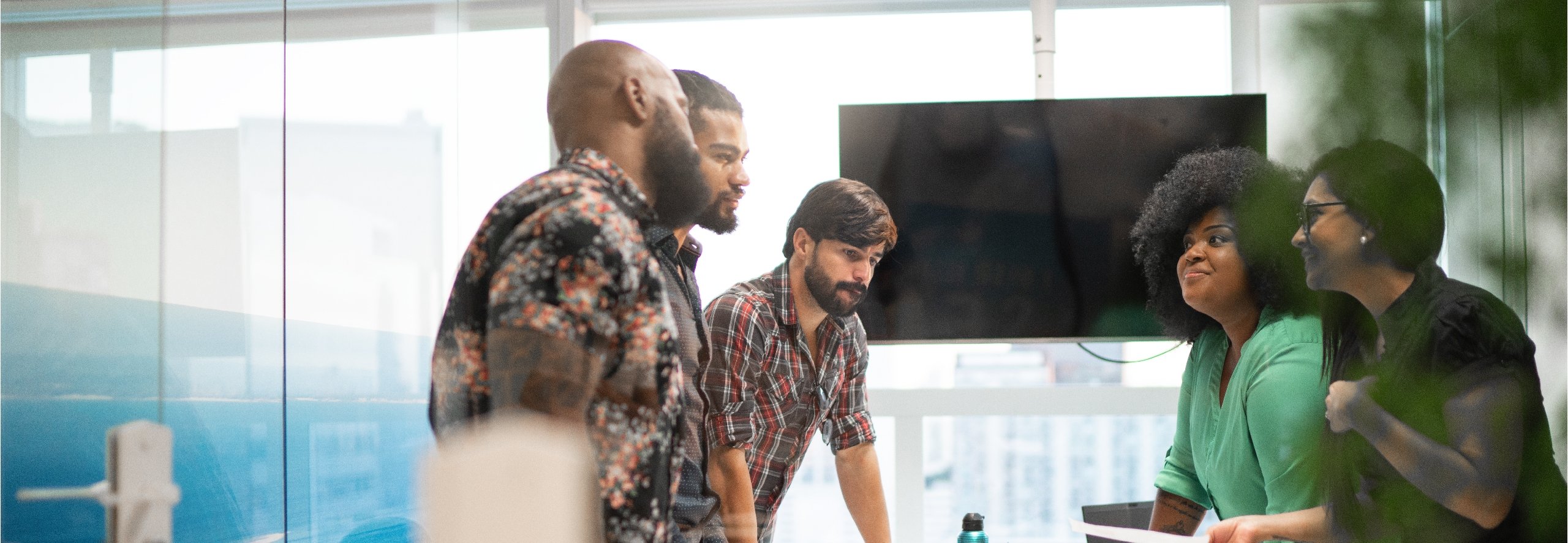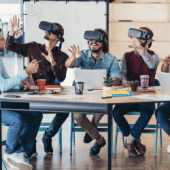Human capital exec: The future cannot be an accident—plan now for the culture you want in 2030
IN BRIEF
- We cannot hope to heal without collaborating with those people around us, and we can’t begin to prosper without a healthy culture.
- People will be able to choose where, when and for whom they work, enforcing a different collaboration culture between employees and managers.
- The 2030 workplace will have a technology-driven culture yet will be human-centered. Artificial intelligence will be the norm and basis of high performance.
The Covid-19 pandemic has been both a challenge and an opportunity: While the challenges posed by the pandemic are well known, the opportunities are often hidden. The last few years have given the world lessons about our personhood, interconnectedness and interdependency. One of the most critical lessons learned is we cannot hope to heal without collaborating with those people around us. And we can’t begin to prosper without a healthy culture.
Culture is never static, and we know that any organization’s culture will be different in 2030 as companies respond to the demands and opportunities of the future. To be successful in the next decade, business leaders will need to adopt a cultural dynamism that actively and intentionally responds to the needs of employees as well as customers.
The future cannot be an accident. The workplace of 2030 needs a fundamental shift in culture and collaboration strategies, and this will take time. Business leaders would be well advised to start re-imagining now the culture they want in the future. Here are some keys for business leaders to consider.
Inter-company cooperation
Career progression will no longer be solely dependent on the employer’s executives. With high-potential and high-performing employees, companies will have to “co-own” the talent as they track the progression from one company to the next. Companies will begin to understand the implications of top talent not working for just one employer the rest of their careers. This will require an executive mindset shift of accepting that talent is “borrowed” to occupy a certain sweet spot, where the aspirations, skills, knowledge and potential of the employee match the offerings, opportunities and challenges of a company. Often, this will force a culture of collaboration, even amongst competitors. Where currently companies hold their own talent forums for employee development, we will begin to see an emergence of inter-company talent forums that benefit both employers and employees.
The Millennial factor
Many millennials will be senior executives by 2030, and they’ll ushering in a different and, dare I say, a better leadership style. It’s the Millennials who have asked the important questions of employers, especially around the value and purpose of companies. Moreover, Millennials believe that a great customer experience is predicated upon a great employee experience. This is a group that is demanding “their space” from employers, as they want to do more than just work for a living; they want to live. Work-life balance is important to them and the traditional leadership style of marching to the drum beat of a manager is becoming a thing of the past. People will be able to choose where, when and for whom they work, enforcing a different collaboration culture between employees and managers.
Technology makes us more human
The 2030 workplace will have a technology-driven yet human-centered culture. Artificial intelligence will be the norm and lead to high performance. The use of AI and other emerging technologies will offer a “real-office feel” for employees who will work from anywhere in the world. This will be achieved through using “four-dimensional to hexagon-dimensional” tools to engage with fellow colleagues and clients virtually, in real time, being able to “touch and feel” colleagues as if they’re in the same room. The technology tools also will translate languages--a fundamental requirement as it will be common to have project teams located everywhere. Language barriers cannot be a hindrance to the high performance of the team.
Delighted employees delight customers
The future of work demands leaders who understand and strive for collaboration, empowerment and the respect of others. This will be essential in ensuring customers are delighted because customer satisfaction will not be sufficient a decade from now. Customers will need to be delighted, and only delighted employees can delight customers. How companies and leaders treat employees must therefore mirror how they treat their customers. This will ensure a culture of deep collaboration between companies, employees and customers as interconnectedness and interdependencies are explored and embraced by the most strategic companies.
The future of work demands leaders who understand and strive for collaboration, empowerment and the respect of others.




























